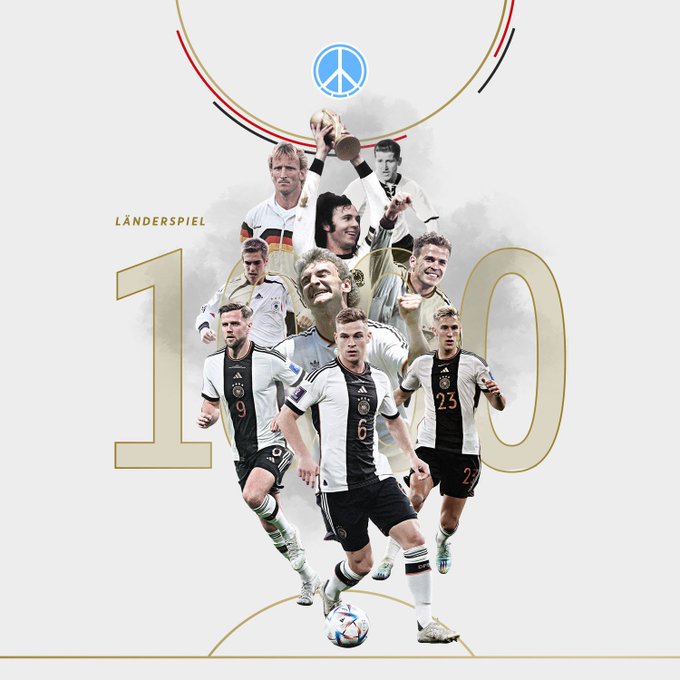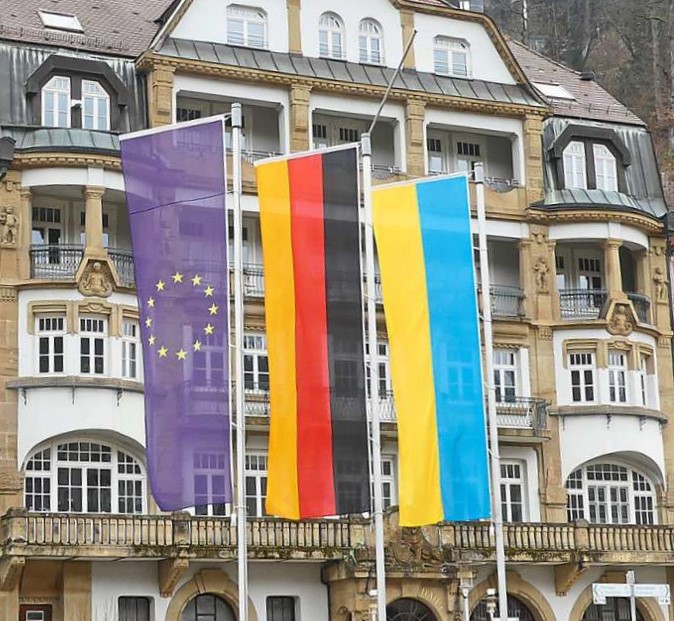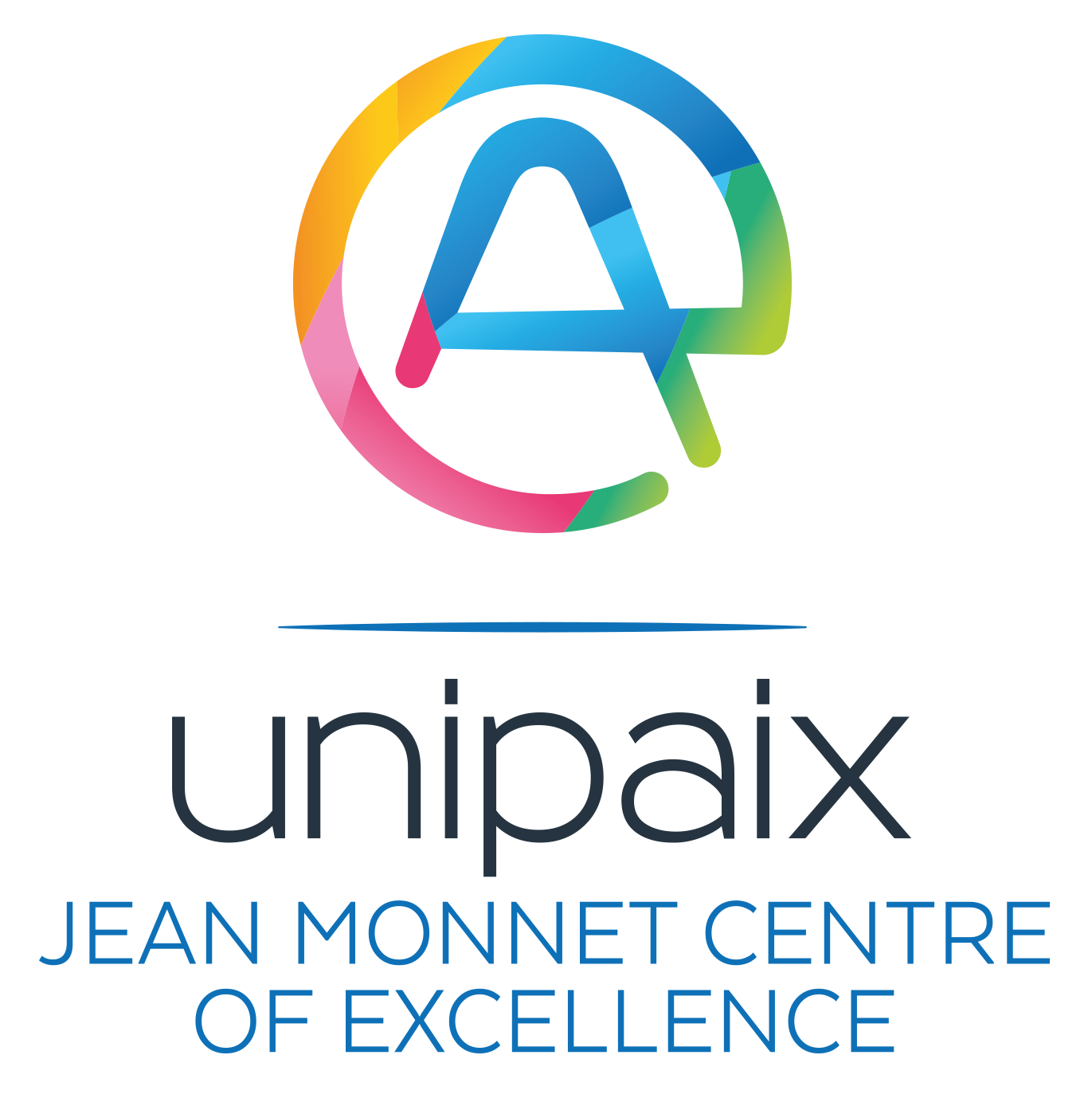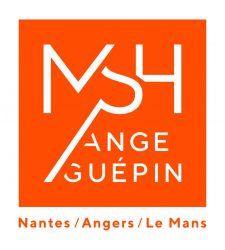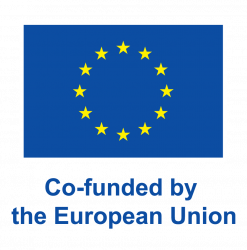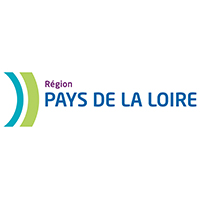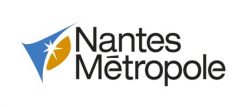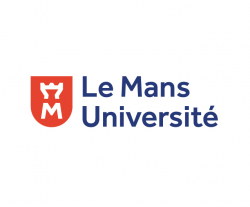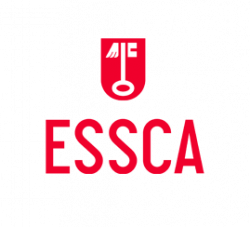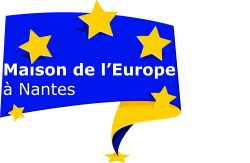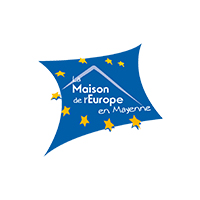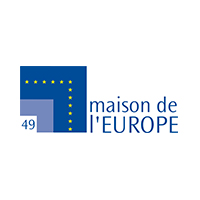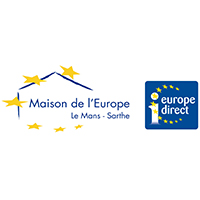This training with certification allows you to deepen your skills in legal, social and medical-psychological accompaniment.
“Asylum seekers, refugees, migrants : how can we receive and integrate them?”

Presentation
The crisis in the reception of refugees and, more broadly, migrants and asylum seekers has revealed real needs in terms of training and skills within the communities, associations and institutions that work on a daily basis to support these different groups. In  order to enable the actors to be more effective and to enable them to meet and exchange on their practices, a multidisciplinary team of teacher-researchers, health professionals and social workers has designed this continuing education offer.
order to enable the actors to be more effective and to enable them to meet and exchange on their practices, a multidisciplinary team of teacher-researchers, health professionals and social workers has designed this continuing education offer.
- Objectives
- To acquire fundamental or more specialized knowledge in the legal, health and social support of these groups.
- To develop a better knowledge of the institutions in charge of the administration and reception of asylum seekers, refugees and migrants.
- To open a space of reflexivity and inter-knowledge for the actors of the Loire region involved in their accompaniment.
- Target groups
- People who work or wish to work with asylum seekers, refugees and/or migrants.
- Ministries, administrations and local authorities (elected officials and agents);
- Health institutions (hospitals, clinics, ...);
- Educational institutions (teachers, facilitators, etc.);
- Professions (lawyers, doctors, nurses, midwives);
- Associations
- Dates
The dates of the next training sessions are still to be confirmed
- How to register
File to be filled out including civil status data, educational and professional background and motivations for taking this training course.
Programme
This training includes a common core and 4 specialty courses, covering a large number of issues faced by migrants on our territory.
Core curriculum (3 days)
M0 - Introduction / context, welcome and inter-knowledge - 1h30
M1 - Geopolitics (1) // Exiles and refugees in Europe and in the world - 4h
M2 - Right of asylum // Institutions and actors of asylum in France - 2 hours
M3 - Interviewing in a cross-cultural situation - 3 hours
M4 - Geopolitics (2) | in the context of exile - study of a country - 3 hours
M5 - Welcoming migrants in new territories - 3h
M6 - Public Policy Analysis - 3 hours
Specialty 1 // Access to the rights of asylum seekers and protected persons (3 days)
Introduction - 0h30
M11 - Reception of Asylum Seekers|reception conditions - 3 hours
M12 - Determining the Status of an Asylum Application | Dublin Procedure - 3 hours
M13 - Determination of status - 4hrs.
M14 - Rights of Protected Persons - 3 hours
M10 - Exchanges of practices and inter-knowledge - 6 hours
Specialty 2 // Access to health care (3 days)
Introduction - 0h30
M21 - Sanitary protections - 3h
M22 - Migrants' Health - 3 hours
M23 - The mental health of exiles - 3 hours
M24 - Counter-transference among the speakers - 3h
M20 - Exchanges of practices and inter-knowledge - 6 hours
Specialty 3 // Vulnerable and precarious groups (3 days)
Introduction - 0h30
M31 - Accompanying people in an irregular situation // Rights and support systems - 3 hours
M32 - Vulnerable Populations // Unaccompanied minors - 3 hours
M33 - Vulnerable Populations 2 | precarious // Gendered Approach - 3hrs
M34 - Exiled and Vulnerable Families // Exile and Intra-Family Relationships - 3 hours
M30 - Exchanges of practices and inter-knowledge - 6 hours
Specialty 4 // Integration facilities (3 days)
Introduction - 0h30
M41 - Access to employment - 3hours
M42 - Access to education | Rights, actors and childcare facilities - 3h
M43 - Access to the language - 3 hours
M44 - Access to lodging and accommodation - 3 hours
M40 - Exchanges of practices and inter-knowledge - 6 hours
Rates
Full rate (paid by companies, professionals, communities)
- Core curriculum: 900 €.
- 1 specialty: 800 €.
- Core curriculum + 1 speciality: 1700 €.
Individual rate
- Core curriculum: 675 €.
- 1 speciality : 600 €.
- Core curriculum + 1 speciality: 1275 €.
Reduced rate (students, jobseekers without support)
- Core curriculum: 450 €.
- 1 specialty : 400 €.
- Core curriculum + 1 speciality : 850 €.
Certificate
A university certificate will be issued to those who have followed at least the common core and a specialty course.
Pre-requisites to follow the certificate course:
- Minimum level of studies: baccalaureate
- Writing skills and a spirit of synthesis
- Interest in the health and/or social sector and legal issues
It is also possible to follow an individualized programme (which does not end on the delivery of a certificate).
Registration
Registrations are made at the Faculty of Sociology of the University of Nantes. The application form can be downloaded here:
Pedagogical Supervisor
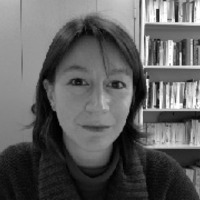
Estelle D’Halluin
Lecturer in sociology, at the CENS at the University of Nantes, specialist in immigration policies.
Estelle d’Halluin is a lecturer in sociology at the University of Nantes. Since the 2000s, she has been carrying out research on immigration policies, combining the political sociology of law, health and mobilisation. Her empirical approach is based on archive analysis, interviews and ethnography. She is currently involved in several research programmes on asylum policies. She is a member of the ARRECO project and the EFAA programme “Exploring the frames of altruistic action. A comparative analysis of volunteers’ engagement in British and French pro-asylum charities”, funded by ESRC.
– Cooperation with Alliance Europa
Estelle is a member of the ARRECO project (The reception and resettlement of refugees in Europe: categorisation and operationalisation) and is in charge of the pedagogical aspects of in-service training (“Asylum seekers, refugees, migrants: what kind of reception?) »
Contact

MARIE BONNENFANT
Education and Innovation Development Project Manager
Alliance Europa Institute for European and Global Studies
USR 3491 Maison des Sciences de l’Homme Ange Guépin
tel : 02 53 00 93 88
mail: Marie.Bonnenfant@univ-nantes.fr
MSH (Office: 509)
5 allée Jacques-Berque
PO BOX 12105
44021 NANTES CEDEX 1
Please contact her :
– to obtain information on the education courses of the institute for European and Global Studies
– to request support related to the internationalization, professionalization and interdisciplinarity of the Institute for European and Global Studies’ education programmes.
– to propose a project, an action, to mature an idea
– to obtain information on the European Idea Factory
The trainers
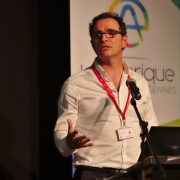
YVES PASCOUAU
YVES PASCOUAU
Founder of www.EuropeanMigrationLaw.eu - Associate researcher at the University of Nantes. Doctor in public law from the University of Pau and the Pays de l'Adour. His thesis deals with "The European Union's migration policy". Holder of the "Genesis and development of the Schengen area" chair from 2017 to 2019.
Former director at the European Policy Centre (Brussels) –
Senior Research Associate at the Jacques Delors Institute (Paris) –
Some links :
– Yves Pascouau’s Twitter account
– European Migration Law’s Twitter account

ISABELLE AUDRAS
ISABELLE AUDRAS
Lecturer – CREN Laboratory – Le Mans University
Isabelle Audras is co-leader of workpackage 2 (“Schools, multilingualism, migration”) of the AMICAE° project.

AYMERIC MARTIN
AYMERIC MARTIN
Social action speaker, COALLIA Association, Nantes
Aymeric Martin worked from 2006 to 2013 in the Reception and Integration Department of the OFII of Seine-Saint-Denis, then from 2013 to 2016 as a social action worker (IAS) at the Coallia reception centre for asylum seekers (CADA) in Livry-Gargan (93). He is now IAS at the Coallia reception centre for women asylum seekers, which opened in Nantes in August 2016.
The CADA welcomes 60 asylum seekers, women and children, in shared accommodation in Nantes and its southern conurbation. We set up a so-called “global” accompaniment, we intervene in support of the asylum application, access to health, schooling, administrative procedures, access to rights. We are in contact with institutions (Ofpra, CNDA, prefecture, Ofii, city services,…), health services, associations, volunteer networks.
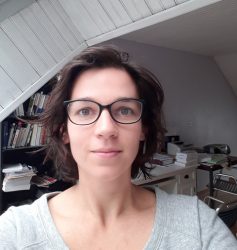
EMILIE LENAIN
EMILIE LENAIN
PhD student in international law at the Jean Bodin Centre, University of Angers
The subject of her thesis in international law is “The reception of refugees in Europe: a comparative study of legal systems”, under the supervision of Bérangère Taxil (Jean Bodin Centre, University of Angers) and Estelle d’Halluin (CENS, University of Nantes) as part of the ARRECO project supported by Alliance Europa.
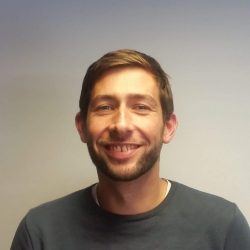
JULIEN LONG
JULIEN LONG
PhD student in contemporary history and sociology at the University of Nantes
Within the CRHIA laboratory (“Societies, times, territories” doctoral school), Julien Long is preparing a PhD on “Marginal Youth. Social mobilizations and informal reception of Unaccompanied Minors in Europe.” His thesis is co-supervised by Michel Catala, Professor of Contemporary History (CRHIA, University of Nantes) and Pierre Monforte, Senior Lecturer in Sociology (University of Leicester), in collaboration with Estelle d’Halluin, Senior Lecturer in Sociology (CENS, University of Nantes).
Julien Long has several activities related to his thesis. As a lecturer at the UFR of Sociology of the University of Nantes, he teaches “Methods of Investigation” (Licence 1) and “Classical Readings in Sociology” (Licence 2). He is also an associate researcher at the Policy department of the Institut Convergences Migrations, in charge of the research axis “Exile and Politics: Colonialism, Nationalism and Capitalism”. His thesis is co-financed by the research and development centre of the Energie Collective civil society. Julien participates in several action-research projects:
– Project of a reception centre for mobile young people in Nantes: project leader for la prépa solidaire des enfants nantais.
– Rivages, a European project, halfway between cinema and research, concerning the logic of hospitality in European ports.
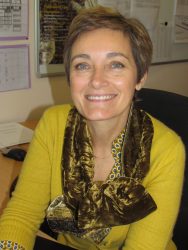
ISABELLE NAUCHE
ISABELLE NAUCHE
Isabelle Nauche is a school inspector and regional educational inspector for literature in the Nantes academy and has been in charge of the CASNAV since 2017.
Isabelle Nauche is an academic inspector and regional educational inspector for literature in the Nantes academy and has been in charge of the Academic Centre for the Education of Allophone Children Newly Arrived in France and Children from Itinerant and Travelling Families (CASNAV) since 2017. This academic service, divided into five departmental centres, is focused on the management and coordination of the reception, schooling and inclusion of newly arrived allophone pupils (EANA) and children from itinerant and travelling families (EFIV). She taught French as a second language to EANA from 1997 to 2008, was a trainer at CASNAV in Paris and responsible for CASNAV in Créteil.
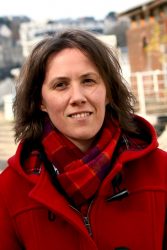
SYLVIE MOREL
SYLVIE MOREL
Doctor in sociology specialised in health issues.
Sylvie Morel is currently working as a research engineer at the UMR ESO (CNRS) of the University of Rennes 2, within the framework of the ANR MIGSAN programme (migrants and health). She completed a thesis (2014) on geographical and social inequalities in access to emergency care in France. Her research approach, which combines an immersion field survey and a statistical approach to the trajectories followed by patients before their arrival in emergency services, reveals the existence of a system of access to care with several social speeds. She is currently pursuing her work on social and geographical inequalities in access to care by studying, among other things, the use of connected tools in the field of private health transport.
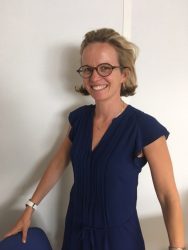
ADELINE SCANVION
ADELINE SCANVION
Doctor of general medicine and head of the PASS
Adeline Scanvion is a doctor of general medicine. As a hospital practitioner, she is responsible for the health care access service (PASS) at the Nantes University Hospital which provides medical and social care for patients in precarious situations.
She has been working with this population since 2005 and has been coordinating the 17 PASS in the Pays de la Loire region since 2011. She was also vice-president of the national PASS collective and is still an active member.

PASCALE RUFFEL
PASCALE RUFFEL
Intercultural and clinical psychologist
Pascale Ruffel is an intercultural psychologist (Toulouse le Mirail) and a clinician (Paris VII). She is oriented by psychoanalysis. She has worked in various places (Youth Judicial Proctection, associations, nurseries, parent/child reception centres, Psychological and Medical Centres, etc.) in working-class neighbourhoods and has been particularly interested in the question of transmission in migrant families and the impact of exile on the interweaving of family relationships.
For the past eight years, she has been working with refugees at the Centre Nantais d’Hébergement des Réfugiés (Nantes refugees’ shelter). From this experience, she wrote a book Les ancêtres ne prennent pas l’avion published by Joca Seria in October 2017. In it, she talks about the singularity of encounters with these exiled people and what this regenerates and invigorates in the relationship to language, for them as well as for her.
She is a therapist associated with the Centre de Ressources et de Consultation Transculturelle of the University Hospital of Nantes.
Posted on 11 March 2021
